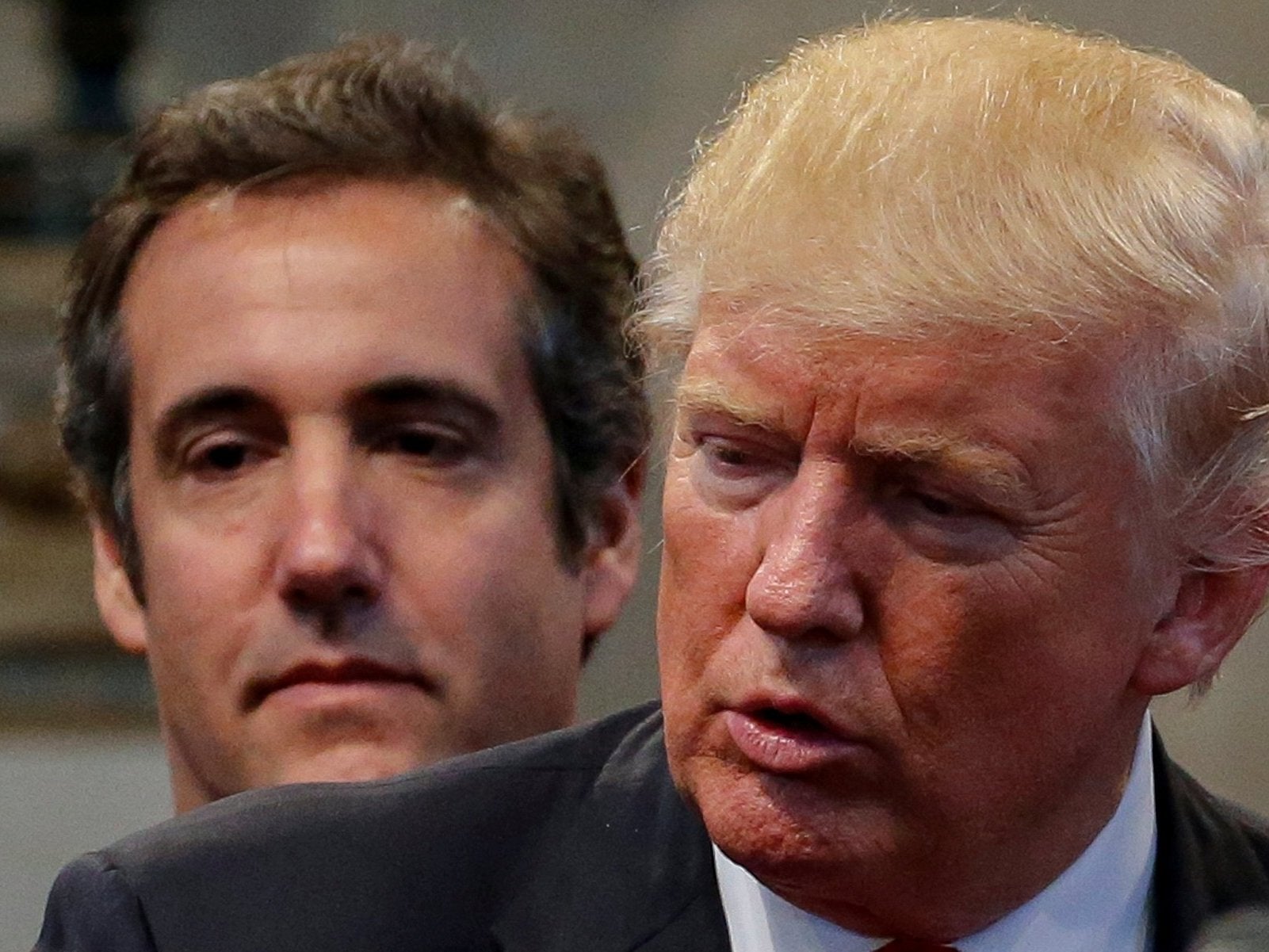Kim, Cohen and the Mueller report
In the 11th instalment of our series recapping an unprecedented presidency, Joe Sommerlad looks at a momentous day for the president and the release of the FBI special counsel’s findings on Russia


Wednesday 27 February 2019 would prove a momentous day for Donald Trump: while he was in Vietnam for a second denuclearisation summit with North Korean dictator Kim Jong-un, his estranged former consigliere Michael Cohen was appearing before Elijah Cummings’s House Oversight Committee to answer some difficult questions.
Kim had travelled to Hanoi by bulletproof train, a 2,500-mile journey that took 65 hours and saw him cross China accompanied by his sister Kim Yo-jong, who was photographed holding a crystal ashtray for him when they briefly stopped for a cigarette break.
They disembarked at Dong Dang station on the border and were driven the rest of the way to the Metropole Hotel by Mercedes limousine, flanked by a trotting security detail.
Trump flew in on Air Force One and was seemingly less optimistic about securing dramatic concessions than he had been prior to Singapore.
He was right to be. Kim reportedly demanded nothing less than the complete lifting of international sanctions, which the US could not agree to, so the discussions ended early then and there with neither side satisfied.
Meanwhile in Washington, Cohen – recently found guilty of tax evasion and campaign finance violations following evidence turned up by FBI special counsel Robert Mueller – was telling the congressional panel: “I know what Mr Trump is. He is a racist. He is a con man. And he is a cheat.”
The lawyer’s appearance was highly anticipated, with the president himself calling in to Jeannine Piro’s show on Fox News as early as 12 January to pre-emptively debunk whatever Cohen might say as lies invented to win a reduced sentence.
The night before his testimony, grinning pro-Trump Florida congressman Matt Gaetz had overtly threatened him on Twitter.
Undaunted, Cohen appeared before the Oversight Committee in public (speaking to the House and Senate Intelligence panels privately on the days before and after) and sincerely expressed his shame about his time as Trump’s fixer.
Withstanding assaults on his character from sneering Republicans, Cohen depicted a sordid but entirely believable landscape of hustling, hush money, empty boasts and financial wangles, claiming his ex-employer had asked him to lie about pursuing planning permission for a new Trump Tower in Moscow.
Mueller, by this point, had heard enough and duly submitted his completed 448-page, two-volume report on the question of collusion between Trump campaign operatives and Russia to attorney general William Barr on Friday 22 March.
I know what Mr Trump is. He is a racist. He is a con man. And he is a cheat
Barr whipped through it that weekend and fired off a four-page letter to Congress summarising its conclusions on Sunday, declaring that the “investigation did not establish that members of the Trump campaign conspired or coordinated with the Russian government in its election interference activities”.
Crucially, on the question of whether Trump obstructed justice by firing Comey two years earlier, Barr wrote that the special counsel’s decision to merely “describe the facts of his obstruction investigation without reaching any legal conclusions” left the ball in his court to make a ruling.
He did so, swiftly and predictably absolving the man who hired him without hesitation.
Mueller subsequently wrote a letter to Barr that Wednesday accusing him of misrepresenting his sentiments, which the attorney general would later dismiss as “snitty” when asked about it at a House hearing in the run-up to the report’s publication, heavily redacted, on 18 April.
While the fact remains that Mueller did detail 10 possible instances of obstruction and explicitly state that his report was “not an exoneration”, Trump cared no more than usual for the nuisances, assuring his supporters the verdict was “a total exoneration” and braying “No obstruction! No collusion!” on Twitter and in person whenever the opportunity arose, even triumphantly tweeting a Game of Thrones meme on the day of the report’s publication.
“If we had had confidence that the president clearly did not commit a crime, we would have said so,” the deeply reserved and unforthcoming Mueller later said at a press conference on 29 May, adding: “It would be unfair to potentially accuse somebody of a crime when there can be no court resolution of the actual charge.”
Appearing in public for a final time before Congress on 24 July, the veteran investigator seemingly admitted that only a Justice Department policy forbidding the indictment of a sitting president had stopped him submitting an official verdict on Trump’s guilt and agreed that he could potentially still be prosecuted once he left office.
It mattered not one jot to the president, who considered himself free of the ”hoax” cooked up by enemies and began daydreaming about revenge with a sigh of satisfaction.
Read the full The Trump Review series here
Join our commenting forum
Join thought-provoking conversations, follow other Independent readers and see their replies
Comments
Bookmark popover
Removed from bookmarks